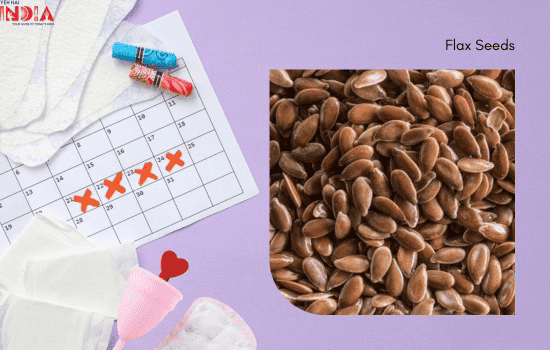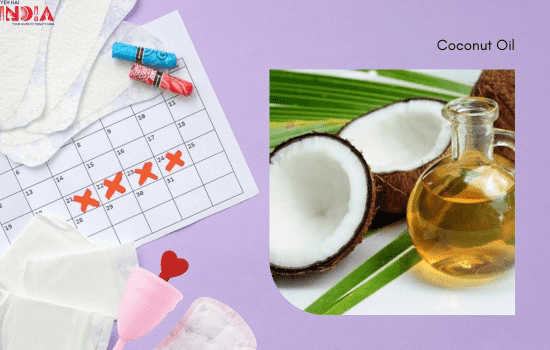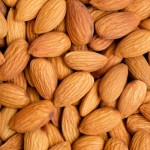The power of nutrition and incorporating superfoods into your diet can make a significant difference in managing PCOS and improving your overall well-being. In this article, we will explore a range of superfoods that have been scientifically proven to be beneficial for women with PCOS.
Are you suffering from PCOS (Polycystic Ovary Syndrome)?
Dealing with hormonal imbalances, fertility issues, weight gain, and other symptoms can be overwhelming. However, there is hope!
Diet has a significant impact on how your body functions. As a result, it is always recommended to consume meals that provide nourishment and keep your body healthy. Diets are frequently different depending on the condition.
This article would primarily focus on superfoods that are great for people diagnosed with PCOS. Let’s start by knowing about PCOS.
Recommended Story – Increasing Organic Food Space In India
What is PCOS?
PCOS is a complex condition characterized by hormonal and metabolic imbalances that can lead to various symptoms and health issues.
Look at the table below for a comprehensive list of various symptoms of PCOS and its causes.
PCOS Symptoms PCOS Causes Ovarian cysts Hormonal imbalances, insulin resistance Infertility Disrupted ovulation, hormonal imbalances Irregular or absent periods Hormonal imbalances & disrupted ovulation Weight gain Insulin resistance, hormonal imbalances Mood changes Hormonal imbalances, fluctuating hormone levels Excessive hair growth (hirsutism) Elevated levels of androgens (male hormones) Insulin resistance Genetic predisposition, lifestyle factors Bloating Hormonal imbalances, insulin resistance Hair loss Hormonal imbalances, nutrient deficiencies
It’s important to note that PCOS symptoms can vary from person to person, and not all individuals with PCOS will experience the same set of symptoms. Additionally, PCOS is a chronic condition that requires ongoing management and medical care.
Making improvements in diet and lifestyle choices can indeed have a positive effect on managing the symptoms and hormonal imbalances associated with PCOS.
Excess weight can exacerbate symptoms and hormonal disruptions; therefore, optimal weight maintenance plays a significant role in PCOS management.
Here are some superfoods that you can incorporate into your diet if you are diagnosed with PCOS.
Superfoods To Manage PCOS
1. Flax Seeds

Flax seeds are excellent complements to a PCOS-friendly diet. These superfoods are high in omega-3 fatty acids, which have been proven to improve mood and overall mental well-being.
The lignans found in flaxseeds have been shown to have anti-androgenic properties, assisting in the reduction of androgen levels in the body. This can be especially beneficial in treating PCOS symptoms such as excessive hair growth (hirsutism) and hormonal abnormalities.
How do you incorporate flaxseeds into your diet?
It can be done in various ways.
- You can consume 1-2 teaspoons of roasted flaxseeds on an empty stomach to maximise their nutritional benefits.
- They can also be ground into a fine powder and added to cereals, yoghurt, smoothies, or baked goods.
It’s important to chew them well or consume them in powdered form to ensure proper digestion and absorption of their nutrients.
2. Cinnamon

Cinnamon is a versatile spice, that promotes balanced hormonal function and improves insulin sensitivity by regulating blood sugar levels.
This superfood also has a positive impact on menstrual cycles, promoting fertility and hormonal balance.
Additionally, cinnamon can act as an appetite suppressant by enhancing feelings of fullness and preventing gastric emptying.
Supports healthy eating habits and weight management.
How do you incorporate cinnamon into your daily routine?
Add 1 teaspoon of cinnamon daily to your diet, sprinkle it on your morning cup of masala chai, or use it in baking, oatmeal, yoghurt, or smoothies.
3. Leafy Greens

Leafy greens, like spinach, kale, and Swiss chard, are excellent additions to a PCOS diet due to their nutrient-dense profile.
These greens are natural superfoods rich in vitamins, minerals, and antioxidants that support overall health, including fertility and hormone regulation.
Vitamin B, found in leafy greens, is beneficial for women with PCOS as it supports fertility by regulating ovulation, controlling insulin levels, and maintaining proper blood flow.
Scientific studies have shown that vitamin B supplementation positively influences hormonal balance and menstrual regularity in women with PCOS.
It could potentially alleviate symptoms associated with PCOS, such as hair loss and excessive hair growth (hirsutism).
4. Berries
Berries, including strawberries, blueberries, and raspberries, are superfoods that benefit individuals with PCOS due to their antioxidants, fibre, vitamins, and minerals.
Scientific studies have shown that berries possess anti-inflammatory properties, which may reduce chronic inflammation.
Additionally, their high fibre content can regulate blood sugar levels, promote satiety, and support weight management and insulin sensitivity. Incorporating a variety of berries into your diet can contribute to your overall health and well-being.
5. Nuts

Numerous scientific studies show that women with PCOS may experience improved lipid profiles, androgen levels, and hormonal balance with regular consumption of nuts like almonds and walnuts (preferably soaked or roasted to improve digestion and absorption of nutrients).
A substantial decrease in total cholesterol and LDL cholesterol levels was also seen in those who ingested almonds versus those who did not.
Furthermore, frequent walnut intake reduced the free androgen index while increasing sex hormone-binding globulin (SHBG), indicating prospective improvements in androgen levels and hormonal balance.
6. Salmon

Salmon, which is high in omega-3 fatty acids, has been researched for its possible advantages in the management of PCOS symptoms. As omega-3 supplementation decreases inflammation, which is a contributing factor to uncontrolled weight gain and oxidative stress.
In women with PCOS, omega-3 fatty acids can also enhance eyesight, brain health, triglyceride levels, and insulin sensitivity.
To get good benefits, shellfish consumption should be done at least 1-2 servings per week, as well as fish oil supplements for vegetarians and vegans, can help check health. However, the use of low-mercury fish sources is recommended. Vegetarians or vegans can consume flaxseeds, chia seeds, and algae-based supplements.
7. Spearmint Tea

Studies have explored the potential antiandrogenic effects of spearmint tea on women with PCOS. A study in Phytotherapy Research found that drinking spearmint tea twice a day for five days resulted in a significant decrease in free testosterone levels and an increase in luteinizing hormone (LH) levels, suggesting a potential antiandrogenic effect.
Another study found that drinking spearmint tea for one month resulted in a significant decrease in free testosterone levels and an improvement in hirsutism scores.
8. Whole grains
Whole grains, including whole wheat, brown rice, quinoa, and oats, are a valuable addition to the diet of individuals with PCOS.
These grains are rich in complex carbohydrates, fibre, vitamins, and minerals, providing sustained energy and promoting overall health.
Scientific research supports the inclusion of whole grains in managing PCOS, as they improve insulin sensitivity, regulate blood sugar levels, and reduce the risk of type 2 diabetes.
Whole grains also support digestive health and help maintain a healthy weight. Incorporating whole grains into meals contributes to a balanced diet and provides essential nutrients.
9. Lean proteins
Lean proteins, like poultry, fish, tofu, and legumes, are essential for managing PCOS.
These low-saturated fat protein sources provide essential amino acids for bodily functions and aid in weight management, insulin sensitivity, and blood sugar regulation.
They also promote satiety, control cravings, and maintain healthy body weight. To avoid excessive saturated fat intake, choose lean cuts of meat and plant-based protein sources.
10. Coconut oil

Coconut oil has gained popularity for its potential health benefits, but the scientific evidence on its effects on PCOS is limited.
It contains medium-chain triglycerides (MCTs), which are fatty acids metabolised differently than long-chain fatty acids. Lauric acid, a component of coconut oil, has anti-inflammatory properties that may help alleviate symptoms associated with PCOS.
Some studies suggest that MCTs in coconut oil may have a modest impact on weight loss and appetite regulation. Still, more research is needed to fully understand their effects on weight management in the context of PCOS.
Further research is needed to validate these claims and determine the optimal use of coconut oil for managing PCOS symptoms.
Overview – Benefits of Superfoods in PCOS
| Food | Potential Benefits of PCOS | Ways to Add It to Your Routine Diet |
| Flax seeds | Reduce androgen levels, improve mood, regulate ovulation | Consume 1-2 tsp of roasted flaxseeds on an empty stomach or add ground flaxseeds to cereals, yoghurt, smoothies, or baked goods |
| Cinnamon | Promote balanced hormonal function, improve insulin sensitivity, regulate menstrual cycles | Add 1 tsp of cinnamon daily to your diet, sprinkle it on masala chai, and use it in baking, oatmeal, yoghurt, or smoothies |
| Leafy green vegetables (Spinach, kale, Swiss chard, or other leafy greens) | Support fertility, regulate hormones, and provide essential vitamins and minerals | Include in salads, stir-fries, soups, or smoothies |
| Berries | Reduce inflammation, regulate blood sugar levels, support weight management | Fresh consumption, smoothies, or as toppings on oatmeal or yoghurt. |
| Nuts | Improve lipid profiles, regulate androgen levels, support hormonal balance | Consume almonds, walnuts, or other nuts as a snack or add them to salads, yoghurt, or incorporate them in baking |
| Salmon | Decrease inflammation, improve triglyceride levels, enhance insulin sensitivity | Include salmon in your diet 1-2 times per week, preferably low-mercury sources or fish oil supplements |
| Spearmint Tea | Reduce androgen levels, improve hirsutism symptoms | Drink spearmint tea twice a day |
| Whole grains (Whole wheat, brown rice, quinoa, or oats) | Improve insulin sensitivity, regulate blood sugar levels | Porridge, salads, or as a side dish |
| Lean proteins (Lean poultry, fish, tofu, or legumes) | Aid in weight management, regulate insulin sensitivity | Replace saturated fat sources with lean options |
NOTE: These foods can be incorporated into your diet but remember they may not cure your PCOS but rather act as a catalyst to help relieve its symptoms.
However, more research is needed to establish the effectiveness and long-term effects of different food sources on PCOS.
Dietary Recommendations for a PCOS-friendly Diet – Dr Tanvi Bansal
Maintain a consistent schedule of meals and snacks throughout the day. This will assist you in maintaining your blood sugar levels and avoiding cravings.
Choose fibre-rich meals that are low in carbohydrates and saturated fat. These foods will make you feel fuller and more satisfied while also improving your overall health.
Limit your consumption of processed meals, sugary beverages, and trans fats. These foods can cause inflammation and insulin resistance, both of which can aggravate PCOS symptoms.
Engage in regular physical activity. Physical activity is a crucial element in controlling PCOS. It can aid in weight loss, insulin sensitivity, and inflammation reduction.
A PCOS-friendly diet including recommended superfoods could help you manage your symptoms while also improving your overall health.
If you’re unsure where to begin, see your doctor or an experienced nutritionist. They can assist you in developing a personalised diet plan that is appropriate for you.
Frequently Asked Questions
What are superfoods, and why are they important for PCOS?
Superfoods are nutrient-rich foods that offer various health benefits specifically for women with Polycystic Ovary Syndrome (PCOS). They are important because they can help regulate hormones, manage insulin resistance, reduce inflammation, and promote overall well-being.
Which superfoods are beneficial for PCOS?
Several superfoods are beneficial for PCOS. Some examples include:
- Berries (such as blueberries, strawberries, and raspberries) are rich in antioxidants and can help reduce inflammation.
- Leafy greens (such as spinach and kale) that are high in essential vitamins and minerals, and support hormone balance.
- Nuts and seeds (such as almonds, walnuts, and flaxseeds) provide healthy fats, fibre, and essential nutrients.
- Lean proteins (such as chicken, fish, and tofu) help stabilize blood sugar levels and support hormone regulation.
Can superfoods alone cure PCOS?
Superfoods are an important component of a healthy PCOS management plan, but they cannot cure PCOS on their own. PCOS is a complex hormonal disorder, and a comprehensive approach is needed to manage its symptoms.
Superfoods can support overall health, hormone balance, and symptom management when combined with other lifestyle changes such as regular exercise, stress reduction, and medical interventions if necessary.
How should superfoods be incorporated into a PCOS diet?
Superfoods can be incorporated into a PCOS diet in various ways:
- Include a variety of colourful fruits and vegetables in your meals and snacks.
- Add nuts and seeds to salads, smoothies, or as a snack.
- Use herbs and spices like turmeric and cinnamon to season dishes and reap their health benefits.
- Opt for lean proteins like chicken, fish, or tofu in your meals.
- Consider replacing refined carbohydrates with whole grains like quinoa or brown rice.
Remember that a balanced and individualized approach is key, and it’s always a good idea to consult a healthcare professional or a registered dietitian experienced in PCOS to create a tailored diet plan.
References:
- Moran LJ, et al. Dietary composition in the treatment of polycystic ovary syndrome: a systematic review to inform evidence-based guidelines. J Acad Nutr Diet. 2013 Feb;113(2):520-45. doi: 10.1016/j.jand.2012.11.018.)
- Moini Jazani A, et al. The role of vitamins and minerals in ovarian functioning: a systematic review. Reprod Biol Endocrinol. 2019;17(1):43.)
- Wien M, et al. Almonds vs complex carbohydrates in a weight reduction program. Int J Obes Relat Metab Disord. 2003 Nov;27(11):1365-72.
- Jamilian M, et al. The effects of walnut consumption on hormonal profiles and metabolic parameters in women with polycystic ovary syndrome: A randomized controlled trial. Eur J Clin Nutr. 2017 Jul;71(7):892-898.)
- Mohammadi E, et al. Effects of Omega-3 supplementation on insulin metabolism and lipid profiles in women with polycystic ovary syndrome: A randomized, double-blind, placebo-controlled trial. J Clin Lipidol. 2017 Sep-Oct;11(5):1150-1160.)
- Rasool S, et al. Effect of omega-3 fatty acids on oxidative stress and inflammatory markers in patients with polycystic ovary syndrome: A randomized controlled trial. J Reprod Med. 2019 Jan- Feb;64(1-2):19-26.
- Akdogan M, et al. Effect of spearmint (Mentha spicata Labiatae) teas on androgen levels in women with hirsutism. Phytother Res. 2007 May;21(5):444-7
- Grant P. Spearmint herbal tea has significant anti-androgen effects in polycystic ovarian syndrome. A randomized controlled trial. Phytother Res. 2010 Feb;24(2):186-8.)
- Eyres L, Eyres MF, Chisholm A, et al. Coconut oil consumption and cardiovascular risk factors in humans. Nutr Rev. 2016 Apr;74(4):267-80.)
- Basu A, Lyons TJ. Strawberries, Blueberries, and Cranberries in the Metabolic Syndrome: Clinical Perspectives. J Agric Food Chem. 2012 Jul 11;60(27):6735-41. doi: 10.1021/jf203488k.)
Also Read – 15 Best Foods for Healthy, Clear, and Glowing Skin










